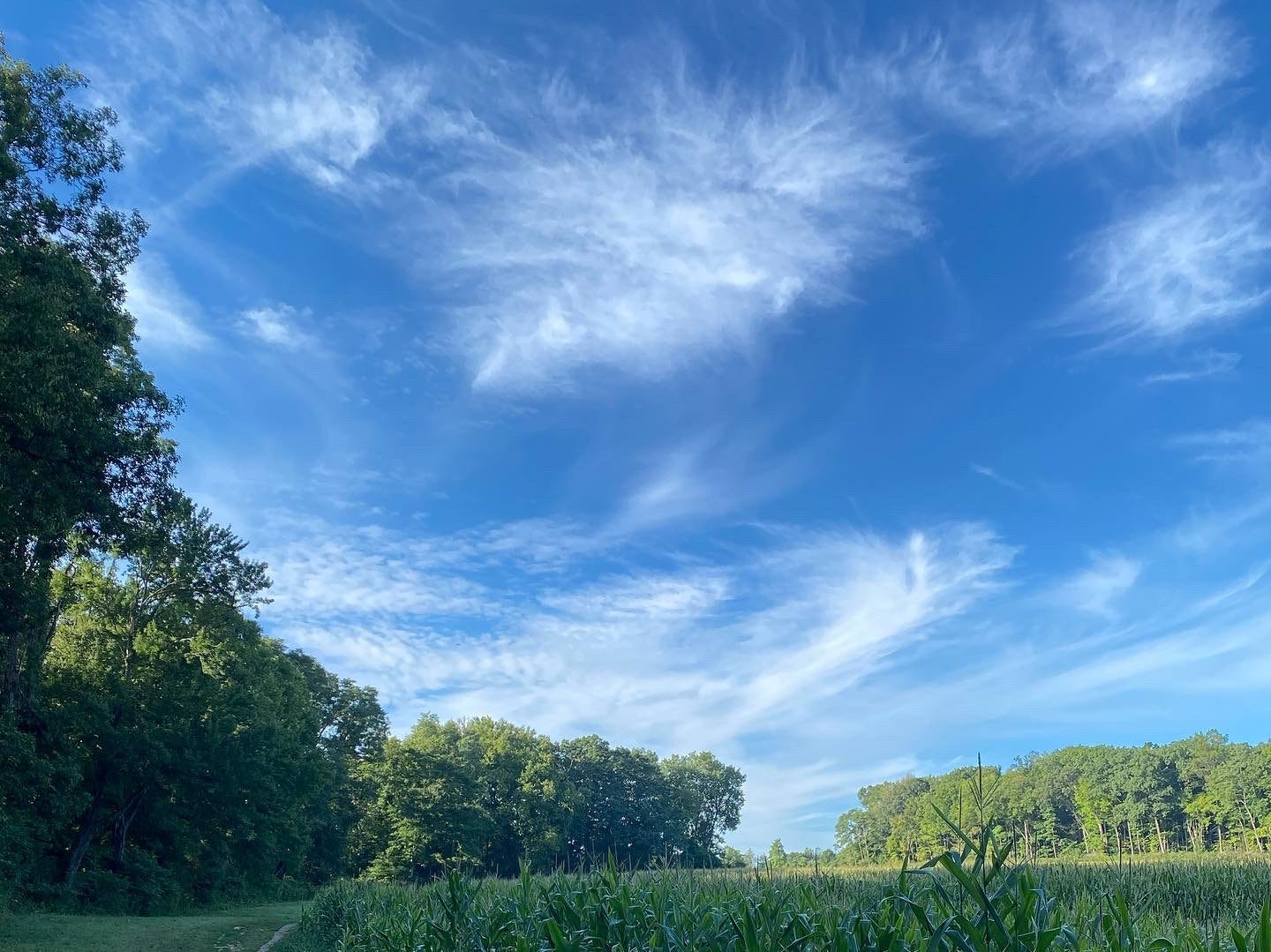
My Tending Year theme for September is “Noticing and Choosing,” which led me to consider my own attention practices. This shouldn’t come as a surprise; I loved Jenny Odell’s How to Do Nothing: Resisting the Attention Economy, a book that exposed for me the ways attention can be siphoned away from the vastness of nature and the hum of community and how we exchange our attention (and our personal data) for things like hearts and likes on social media apps designed by the same scientists who design slot machines.
When I started paying attention to my attention practices, I noticed the connectivity my Apple watch provides me: I flick my wrist to read a text message or receive a vibration when someone’s calling me (my phone is always on silent, but the calls route to my watch). I imagined an experiment: I’ll just take it off, treat myself to a fancy artisan watch instead, like back in the day. Can you guess what happened next? I panicked. What if something happened to my loved ones but since my phone is always on silent I wouldn’t get the message bounced to my watch? My chest tightened, and while I felt uncomfortable, I also flagged my catastrophizing as something worth further consideration. I’m sharing some of that consideration with you here.
There’s a meme that the 30s and 40s crowd is currently circulating online that amounts to “teens today might have access to _____, but they will never remember the glorious feeling of knowing your parents had no way to reach you until you returned home at dark.” I’m 35 and remember the days of pay phones, didn’t get an iPhone until grad school, and I wonder: how did I deal with being out of the loop before I had these magical devices? Did I fear that I would miss drastic news? The answer is no, I didn’t worry. I trusted I’d learn what I missed when I got home and checked the answering machine.
Yet…is comparing nostalgia for pre-smartphone adventures to current 24/7 digital connection even fruitful? Is the question moot, or meant to moralize some people’s titanium boundaries over those of us who use phones as lifelines to connect to communities, check out when life is too overwhelming, or kill some time crushing gems between meetings? As I’ll mention below, I found a couple reasons I want to pay attention to how I use my devices, but I’m also aware that whether I spend 2 or 3 hours on my phone each day isn’t going to drastically change my life (something a lot of best-selling guides promise us: a changed, better life through individual willpower and decision-making).
I’m curious to see how I can develop new practices over this next year without shocking my system or shaming myself when I encounter resistance or discomfort, like I did with my watch. This reminds me of a conversation I had with Brooke McAlary on my Slow Home Podcast interview: our individual choices DO matter, but we shouldn’t put the onus and shame on an individual to personally solve systemic issues on their own. That’ll take a larger, community-driven, societal shift, like the ones we see occurring with labor unionizing at places like Starbucks and Amazon.
Back to the technology discussion. This week’s post is about two insights I had about my own attention practices with my smart devices. I’m sure I’ll continue researching and practicing boundary work around availability, but this feels like an appropriate place to start.
FOMO
When we think about FOMO, Fear of Missing Out, it’s often in terms of missing a party or get together, being lonely and bored at home on your couch while everyone else is out clinking glasses and laughing together. When I thought about my own anxiety around missing an emergency call routed via my watch, I thought: okay, this isn’t really about my phone, is it? My fear of missing out isn’t a worry I’ll be lonely, it’s a worry I’ll actually miss an emergency call. To always have my phone-via-watch on my person is my effort of having control.
Dopamine
I’m relistening to Catherine Price’s How to Break Up With Your Phone and appreciated the reminder that dopamine is released in our brains when we anticipate a reward. I deleted my email app from my phone a few months ago to help curb my habit of checking my email all the time, including at red lights. To check my email on my phone via the browser, I now have to complete a 2-factor authorization step that involves opening additional apps. It takes a lot longer than just clicking a button, skimming, and putting down the phone. The dopamine part comes in here: one time I checked my email at a red light in 2019 and I received a message from the Department Chair notifying me that I had been awarded a Dissertation Fellowship that equaled to a whole semester of teaching pay. Almost every time I stop at that red light in town I remember how good that email felt. It’s hard not to wonder if somewhere in my brain there’s a neurological pathway connecting that red light and by extension other red lights to good news, an intermittent reinforcement that tells me my next big reward or relief is just an email check away.
Takeaways
I want to leave you with something that I heard on a podcast when I was researching the practice of noticing. In the “Coming Home to Yourself” episode of the Hurry Slowly podcast, Nkem Ndefo closed her discussion with host Jocelyn K. Glei with a salient question, “What are you noticing?” Glei developed this question into a prompt in the episode’s closure: “Begin by noticing behaviors you are engaging in in order to not notice certain things that you might prefer not to see… Where is there a veil between you and the noticing?”
What am I trying not to notice by wanting to discard my tech devices and craving them once I’ve removed them? That I cannot control everything, particularly the things that scare me. The truth is, whether I had my phone or watch on me, whether I checked my email at a stop light, at 8am, or at midnight, I can’t protect everyone I love at all times. I wonder if part of actively committing to tending to myself this year will include facing my probability overestimation and choosing to put faith in my loved ones’ communities to be helpers in the case of a unlikely emergency when I’m on a walk in the woods, only noticing the vibrations of dirt under my boots and the sound of birds in the trees.
xo,
Dr. Kate
For Your Consideration
Follow me on Instagram
My offerings: 1-on-1 Coaching (10% off for paid subscribers) and workshops
Sign up for the waitlist for Perceptible Progress: A Goals Course
Order my book, Tend to It: A Holistic Guide to Intentional Productivity
Listen to my podcast interviews






